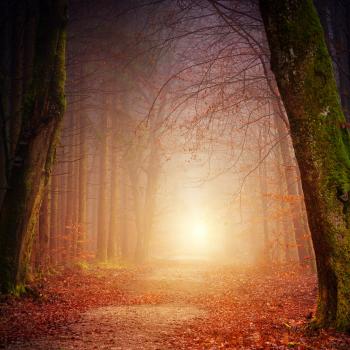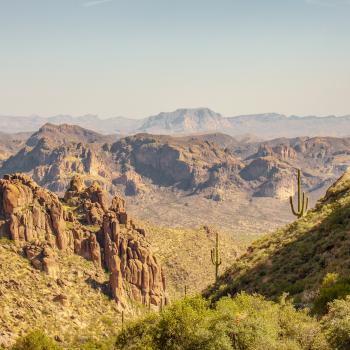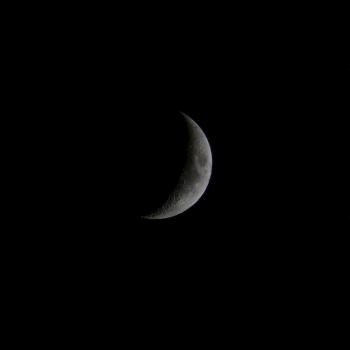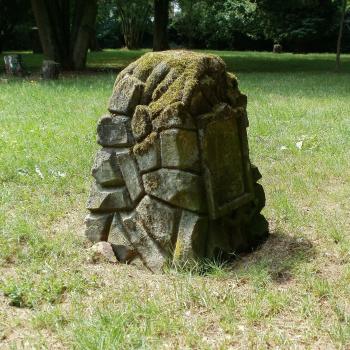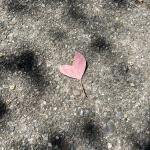Before we begin covering how to worship the Four Gods, I want to go in-depth into each of these ‘new deities’ (you want to know who you’re talking to, after all!). Each of the Four will receive their own post, and as before, questions are very welcome. These posts will cover their role in the Westernlands and our world, their relationships with the other gods, and links to other relevant posts.
the Ophelia
I hop in the shower every morning and pray to the Ophelia. I’ll take a few minutes, at least, to just breathe. Just breathe and pray.
She is a god of the waters, the soul of a sacred river in the otherworld and the river itself. In her mythos, the Clarene brings her to the Westernlands and splits her body open, releasing all the waters contained in the Ophelia and feeding the new land. She becomes tied up in the land and the spirits that live there, and through the worship of the spirits in the West (and the acceptance of the Clarene) becomes a god.
But before she becomes a god, she drowns. She drowns first in her own waters (which can be interpreted in a variety of ways, and I encourage you to share your interpretation of that phrase!), and through that river is able to touch the other waters of the world. She reaches towards others and drowns in many rivers, many lakes, many oceans. Because she herself is drowned, she shares an intimate connection with those that she drowns. She is not only the River that swallows us. She drowns alongside us.
The River, the Ophelia (the two are the same, though the Ophelia may manifest outside of it), is many things – the flow of time, the waters of life, the blood of the land, and the overwhelming soup of emotions.
Where the Clarene is focused on control and boundaries, the Ophelia teaches us to flow with our urges. She asks us to open to our desires and our emotions and move with them, to learn them intimately. If we were to take only the Clarene’s focus on control (even in anger, the Clarene is in control and focused), we would end up strangling ourselves. the Ophelia splits us open and leaves us raw to our desires. She refuses to deny her own passions, and she asks that we don’t either (at least, in her presence).
When she comes to us, she is often the most clearly overwhelming god. Her emotions flow out and wrap around us. She doesn’t conceal her anger or her sorrow. When we go to her, there is constant chance of drowning. She will strip away anything in our lives which fails to serve us, no matter how painful. Often, when she comes into our lives, she brings conflict. Each of the gods could be a challenger to us, forcing us to grow, but the Ophelia most often adopts that role in the mythos. She confronts the Laetha again and again, demanding he explain what makes him worthy to be a King. She even confronts the Clarene at times. She is water against rock, that force that shapes soft stones and sand.
the Clarene crafts our bodies from mud and gunpowder, and the Ophelia presses her lips to our heart, breathing into us emotions and waves and liquid. She is the emotion that brings us to our knees, and she is also the arms that hold us up when we can no longer stand on our own. While the Clarene, both mythically and in our interactions with her, is more likely to lift us to our feet and push us forward again, when we approach the Ophelia in her protective and mothering aspects, she holds us and tells us we can remain in her waters as long as we need.
(Though we should remember that water still moves, lest it grow stagnant.)
Her realm is emotions – diving into our emotions, seeing how they bleed out, understanding how they affect those around us – and so she responds best to flowery prayers. And she responds to tears, and calls made from grief or sorrow, and when we simply can’t take another step, we can call to her. Her name, like any god’s, is powerful in itself, and if we establish a relationship with her, just saying her name can bring us comfort.
She is, also, the god of ‘misfits’. Being the sacred River, connected to other rivers, she is able to transport us to other worlds, and she is able to show us different realities. She can lead us to our home, where we fit in, or she can teach us to accept where we do not fit in. This ties in again to conflict, especially as outsiders or people on the boundaries can cause society to shift just by existing. This part of the Ophelia also leads into her role as a retribution and justice god (roles that are most emphasized in the Ophelia and Clarene out of the Four Gods) – she is the defender and watcher of those killed by hate and fear. Challenging society or expectations just by existing is dangerous, and it is in such situations that we see the most compassionate side of the Ophelia.
When I step into my shower every morning and pray to her – that is a devotion she appreciates and supports. Cleansing everything away, taking the time to just be in the water, to just melt into it – that is sacred.
To conclude, the Ophelia is a god of rivers who teaches us about conflict, change, and self-reflection, and she brings us the gift of self-understanding. She drowns us in our own emotions, our own possibilities, our own desires, and through that teaches us to accept what we find in the deep.
Links
Four Gods of the Otherfaith
Meditation on the Ophelia
Fear is Not the Goal
the Gods (Otherfaith blog)
Delight ~ Desire (story)
[The Otherfaith is a new religion focusing on new gods. The information posted here is based on personal experiences, revelation, and spirit-instruction. You should not expect to see references to folklore or historical texts. My focus is not on finding historical records of these deities but interacting with them as they are and as they themselves instruct.]







